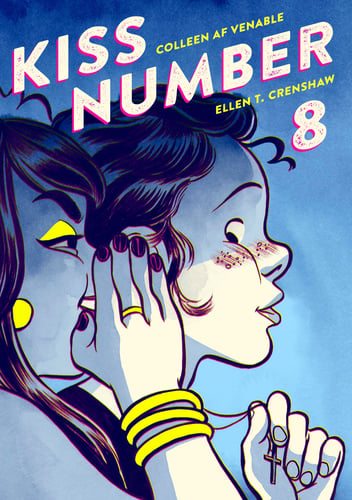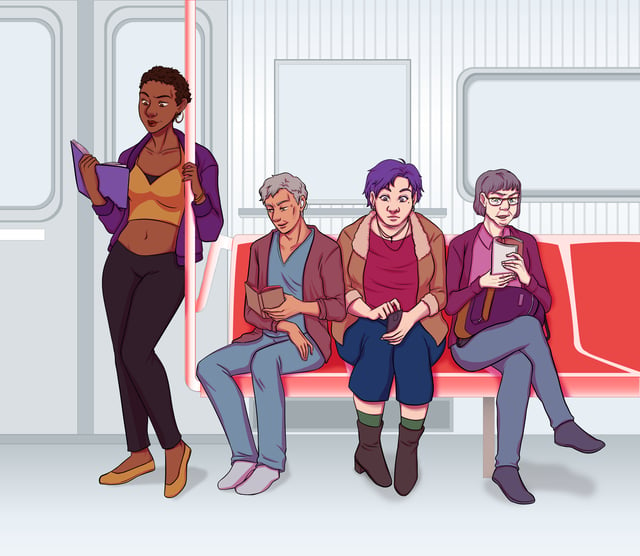Kiss Number 8 wasn't quite what I was expecting and I'm not sure how to discuss it without spoilers. I'll try to be vague in the main review, but I've added a spoiler at the end for those who want to be prepared.
It's 2004 and Mads is on a break from dating. Her family attends church, her step-grandmother constantly encourages her to be more traditionally feminine and she has a great relationship with her father, attending weekly minor league baseball games with him and a few of his friends... and the younger brother of one of her good friends. The complicated female friendships in this story play a huge role in Mads' journey of self-discovery, but it's also impacted by that younger brother having a massive crush on Mads. At several points, she makes some questionable choices, most of them involving those three people.
She's had a crush on her toxic best friend forever, but isn't quite ready to admit that to herself until a good way through the book. She's convinced that she's straight and nothing in her life has suggested otherwise... until she starts to put the pieces together. She's also had a bunch of bad kisses, illustrated on the page in all their teeth-bumping, face-licking glory.
This could be a fairly straightforward (if messy because teens) story of realizing and then coming out as bisexual, but it's not. There are seriously complicated family dynamics at play, some of which might be not-great for some readers. (See spoiler.) One of the most interesting and successful narrative choices in the book is how while one character is telling a story from their past, the actual illustrated panels reflect the truth of the events being retold. It's a fascinating look at how we can selectively remember or alter memories as time passes, in order to fit our feelings and after the fact. Mads' father in particular has a lot of work to do. He doesn't do the work on page and I think it's intentional that he's not totally resolved his issues by the time the main story ends. There's a very short epilogue that suggests he gets there eventually, but readers may be frustrated by this.
My own reader biases probably played a large role in my perception of this story. In 2004, I was a senior in high school and selectively out as bisexual. In the author notes, Venable and Crenshaw discuss how different things were in 2004 compared to now, and it's so true. This book feels like a time capsule and reading it was a walk down an uncomfortable memory lane. Back then, I think a lot of us had a lot of internalized homophobia and I'm so glad that the kids these days have a better media environment to grow up in. (Yes, it's not perfect.) Mads' story felt very real to me, even when I didn't like what I saw.
All in all, parts of the story were drawn out and parts were abruptly wrapped up. The pacing could be smoother, but Kiss Number 8 is very successful at eliciting emotion and feels very true to its time.
Content Warnings: homophobia, transphobia, domestic violence, internalized homophobia, sex
I purchased my copy of this book.
Spoilers below
Spoilers soon
Spoiler: Mads' father's trans father (Sam) dies before this book begins and his life partner has been calling the house because she wants to give Mads her inheritance. Mads' father has broken all communication after what he felt was abandonment by a parent. In reality, her grandfather had been physically abusive and cheating on his spouse with the person who would soon be his second wife. He was abusive before, but when he found out that the person he'd married was trans? He put Sam in the hospital. Sam never came back because of threats on his life.
There's a lot of transphobia and then that transphobia turns into escalated physical abuse. Mads' dad is both transphobic and homophobic and it's kind of a lot to read, even if it's totally realistic. The events with Sam and Mads' dad occur during the 1960's and it's obvious both that Sam got his HEA AND that Sam was horribly mistreated by his husband while trying to perform femininity as a housewife. A big part of Mads' self-discovery is through learning about her grandfather and how Sam found happiness... but it's also about all the pain in both her life and Sam's.


